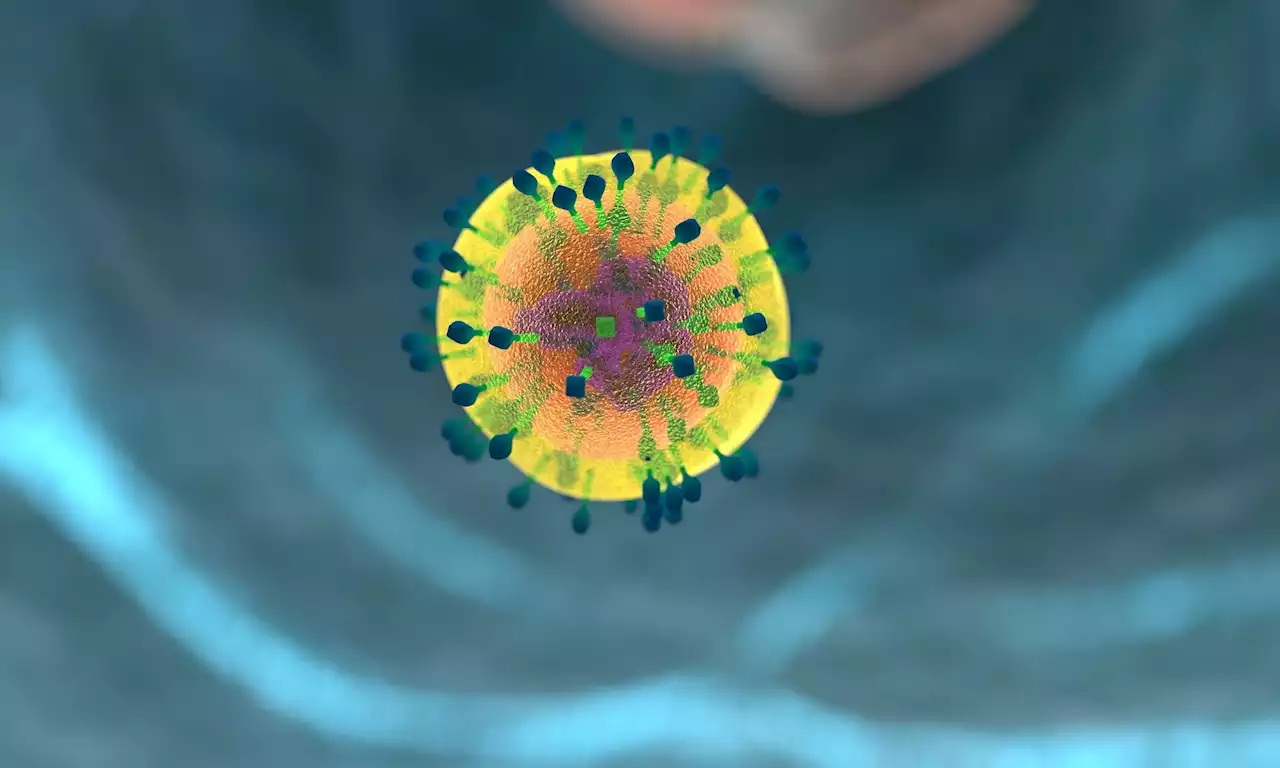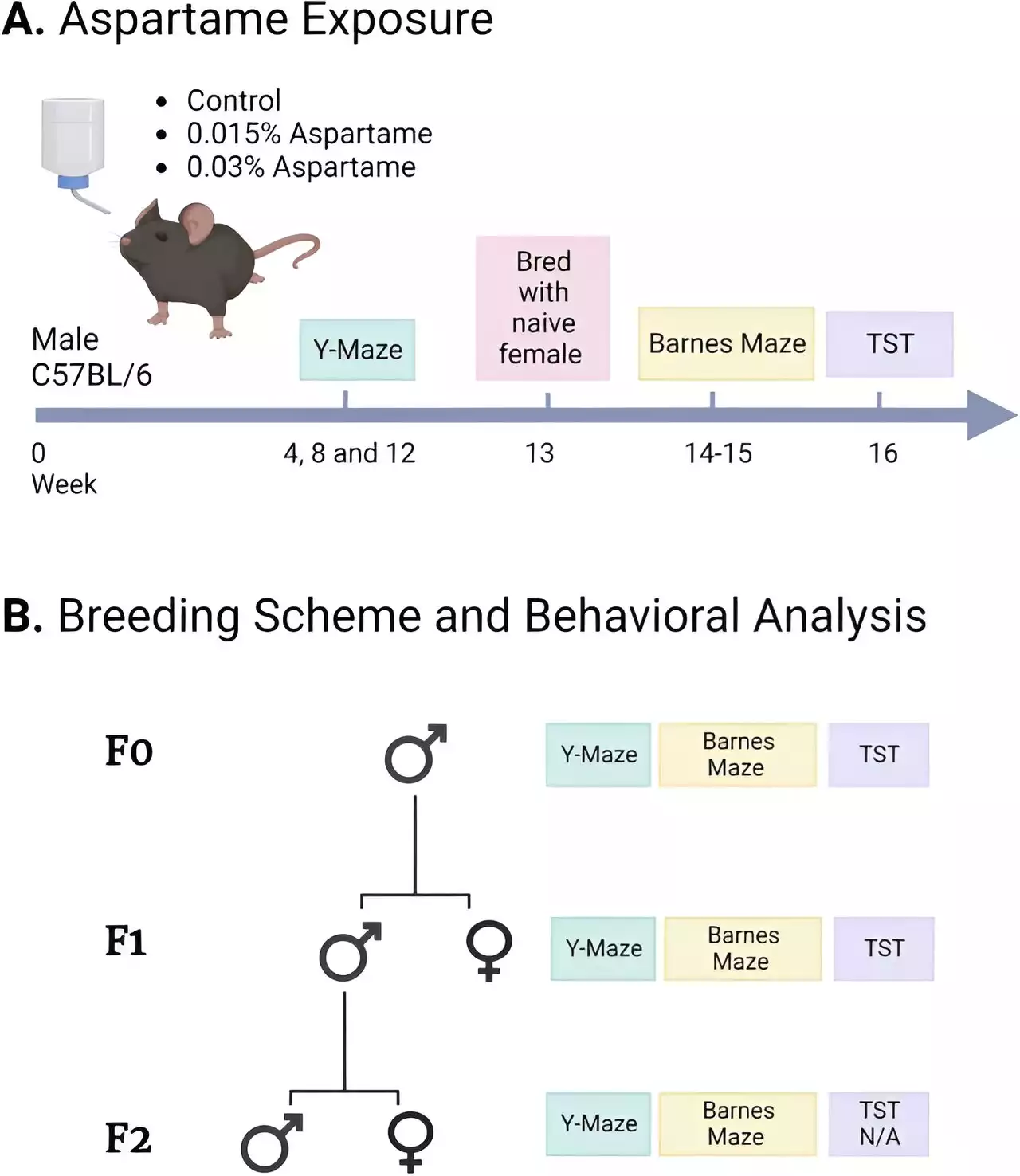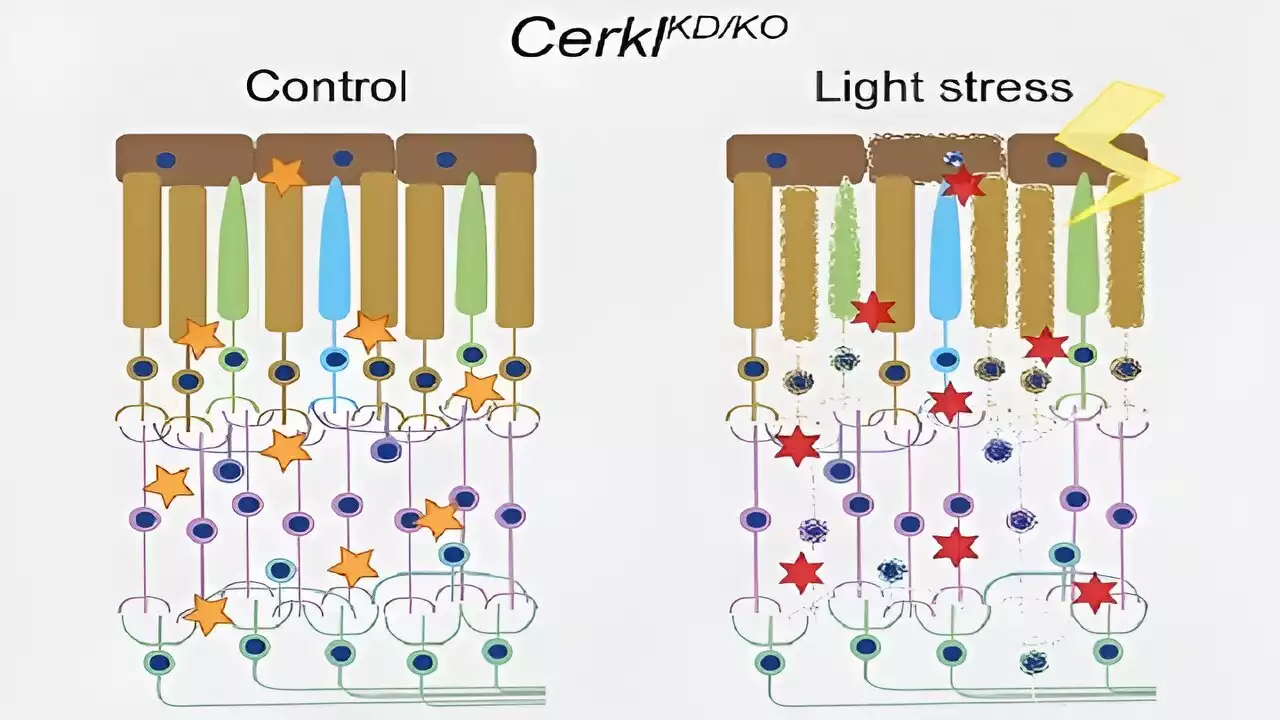There are still many enigmas about the mechanism of action of the CERKL gene, which causes retinitis pigmentosa and other hereditary vision diseases. Now, a team from the University of Barcelona has described how the lack of the CERKL gene alters the ability of retinal cells to fight oxidative stress generated by light and triggers cell death mechanisms that cause blindness.
, is a step forward in characterizing hereditary blindness and identifying key mechanisms to address future treatments based on precision medicine.
The study was led by Professor Gemma Marfany, from the Faculty of Biology, the Institute of Biomedicine of the University of Barcelona and the Rare Diseases Networking Biomedical Research . The research study, carried out with animal models, is the result of close collaboration with teams from the Sant Joan de Déu Research Institute , the University of Valencia, the Severo Ochoa Molecular Biology Center and the Hospital 12 de Octubre Research Institute in Madrid.
The study reveals for the first time that when the CERKL gene is missing, retinal cells are permanently stressed."This basal exacerbated state means that when additional oxidative damage is caused—as with continuous light stimulation—the cells are no longer able to respond because they can no longer activate antioxidant response mechanisms," says Marfany, a member of the UB's Department of Genetics, Microbiology and Statistics.
"Therefore, the retina is permanently inflamed. As a consequence, retinal cells activate cell death mechanisms, such as necroptosis and ferroptosis. Although the experiments have been performed in mice, these alterations allow us to explain how and why photoreceptor cells die in patients and cause blindness," she adds.The retina is a neural tissue that is constantly subjected to light stress—and therefore—and retinal cells must activate antioxidant mechanisms to cope with it.
"Thanks to the multidisciplinary collaboration between teams, we have been able to combine different approaches to delve into the pathology caused by mutations in CERKL. Transcriptomics techniques have revealed how the retina responds to light stress when it lacks the CERKL protein.
United Kingdom Latest News, United Kingdom Headlines
Similar News:You can also read news stories similar to this one that we have collected from other news sources.
 Researchers identify a rare cause of male infertility and discover a potential cureResearchers investigated the genetic underpinning of asthenozoospermia, the leading cause of male fertility.
Researchers identify a rare cause of male infertility and discover a potential cureResearchers investigated the genetic underpinning of asthenozoospermia, the leading cause of male fertility.
Read more »
 Researchers take another big step toward HIV cureToday, HIV can be managed with medical treatment. However, despite 40 years of intensive research, scientists have not yet succeeded in finding a cure for the disease. People with HIV experience a flare-up of the virus only a few weeks after stopping treatment. But now, an international team of researchers, led by scientists at Aarhus University and Aarhus University Hospital, may have moved another step closer to a medication-free existence for the millions living with HIV today.
Researchers take another big step toward HIV cureToday, HIV can be managed with medical treatment. However, despite 40 years of intensive research, scientists have not yet succeeded in finding a cure for the disease. People with HIV experience a flare-up of the virus only a few weeks after stopping treatment. But now, an international team of researchers, led by scientists at Aarhus University and Aarhus University Hospital, may have moved another step closer to a medication-free existence for the millions living with HIV today.
Read more »
 Researchers uncover 'circular logic' of RNAs in Parkinson's diseaseResearchers are gaining new insights into neurological diseases by studying circular RNAs (circRNAs) in brain cells. A new study by investigators from the Brigham and Women's Hospital identified over 11,000 distinct RNA circles that characterized brain cells implicated in Parkinson's disease and Alzheimer's disease. Their results are published in Nature Communications.
Researchers uncover 'circular logic' of RNAs in Parkinson's diseaseResearchers are gaining new insights into neurological diseases by studying circular RNAs (circRNAs) in brain cells. A new study by investigators from the Brigham and Women's Hospital identified over 11,000 distinct RNA circles that characterized brain cells implicated in Parkinson's disease and Alzheimer's disease. Their results are published in Nature Communications.
Read more »
 Researchers create 'lipidomic map,' offering insights into immunologyAn international team of scientists has developed a method for simultaneously detecting thousands of lipid molecules that are displayed to T cells in the human immune system.
Researchers create 'lipidomic map,' offering insights into immunologyAn international team of scientists has developed a method for simultaneously detecting thousands of lipid molecules that are displayed to T cells in the human immune system.
Read more »
 Researchers conduct comprehensive psychological evaluation of university studentsThe prevalence rates of stress, depression, anxiety, insomnia, mania, suicidal ideation, loneliness, and psychotic experiences among university-going students in the UK.
Researchers conduct comprehensive psychological evaluation of university studentsThe prevalence rates of stress, depression, anxiety, insomnia, mania, suicidal ideation, loneliness, and psychotic experiences among university-going students in the UK.
Read more »
 Researchers discover learning and memory deficits after ingestion of aspartameOngoing work by Florida State University College of Medicine researchers into how aspartame affects the brain has linked the artificial sweetener with learning and memory deficits in mice.
Researchers discover learning and memory deficits after ingestion of aspartameOngoing work by Florida State University College of Medicine researchers into how aspartame affects the brain has linked the artificial sweetener with learning and memory deficits in mice.
Read more »
